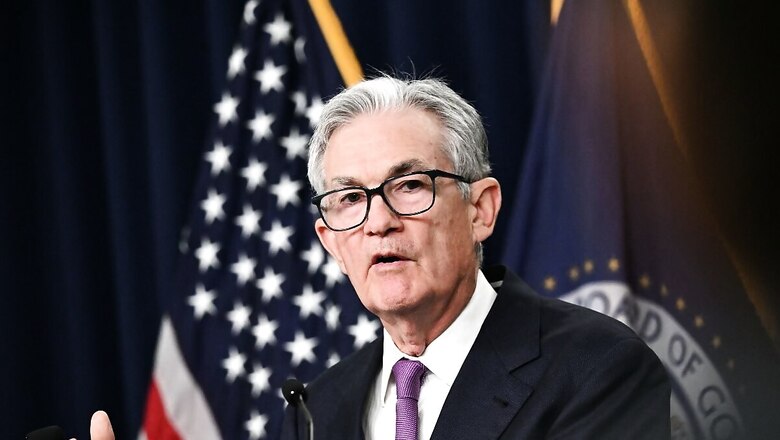
views
The US Federal Reserve voted Wednesday to hold interest rates at a 22-year high for a second straight meeting, as it moves to slow stubborn inflation without damaging the strong economy.
The Fed’s decision to keep its benchmark lending rate between 5.25 percent and 5.50 percent gives policymakers time to “assess additional information and its implications for monetary policy,” the central bank said in a statement.
The decision was widely expected, given the Fed’s stated goal of slowing inflation to its long-term target of two percent.
It marks the first time officials have held rates steady at two consecutive meetings since they began tightening monetary policy last year.
The US central bank said any future decisions on policy firming would “take into account the cumulative tightening of monetary policy, the lags with which monetary policy affects economic activity and inflation, and economic and financial developments.”
Since peaking at more than seven percent in June last year, inflation as measured by the Fed’s favored yardstick has slowed by more than half — although it remains stuck firmly above three percent.
When the Fed hikes interest rates it raises the cost of borrowing from the bank, which is supposed dampen economic activity and weaken the labor market.
But despite its aggressive monetary tightening, the Fed noted that “economic activity expanded at a strong pace in the third quarter.”
Job gains remain strong, and the unemployment rate has remained low, it added.
The Fed’s move is likely to raise expectations that it is done hiking interest rates and is moving into a prolonged pause.
Why US Fed Rates Are Important?
The US Fed rates are important because they affect the cost of borrowing money throughout the economy. When the Fed raises interest rates, it makes it more expensive for businesses to borrow money to invest and for consumers to borrow money to buy homes, cars, and other goods. This can slow down economic growth. However, raising interest rates can also help to control inflation, which is the rate at which prices for goods and services are rising.
The Fed’s interest rates also have a global impact, as they influence the value of the US dollar. When interest rates rise, the dollar tends to strengthen, which can make exports from the US more expensive and imports less expensive. This can have a negative impact on US businesses that export goods and services.
(With agency inputs)

















Comments
0 comment